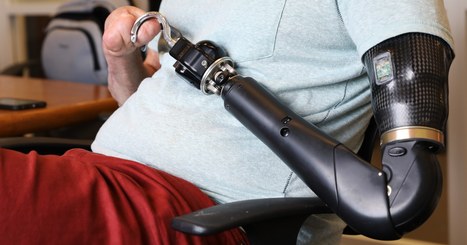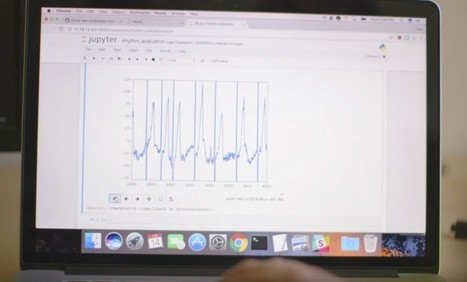Deep learning is helping to make prosthetic arms behave more naturally.
Each year, more than 150,000 people have a limb amputated after an accident or for various medical reasons. Most people are then fitted with a prosthetic device that can recognize a limited number of signals to control a hand or foot, for example.
But Infinite Biomedical Technologies, a Baltimore startup company and another firm are taking advantage of better signal processing, pattern recognition software and other engineering advances to build new prosthetic controllers that might give amputees an easier life.
The key is boosting the amount of data the prosthetic arm can receive, and helping it interpret that information. “The goal for most patients is to get more than two functions, say open or close, or a wrist turn. Pattern recognition allows us to do that,” says Rahul Kaliki, CEO of Infinite. “We are now capturing more activity across the limb.”
Kaliki’s team of 14 employees are building the electronics that go inside other companies’ prosthetic arms. Infinite’s electronic control system, called Sense, records data from up to eight electrodes on his upper arm. Through many hours of training on the company’s tablet app, the device can detect the intent encoded in Rubin’s nerve signals when he moves his upper arm in a certain way. Sense then instructs his prosthetic hand to assume the appropriate grip.
read the original unedited story at at https://www.wired.com/story/bionic-limbs-learn-to-open-a-beer/



 Your new post is loading...
Your new post is loading...








